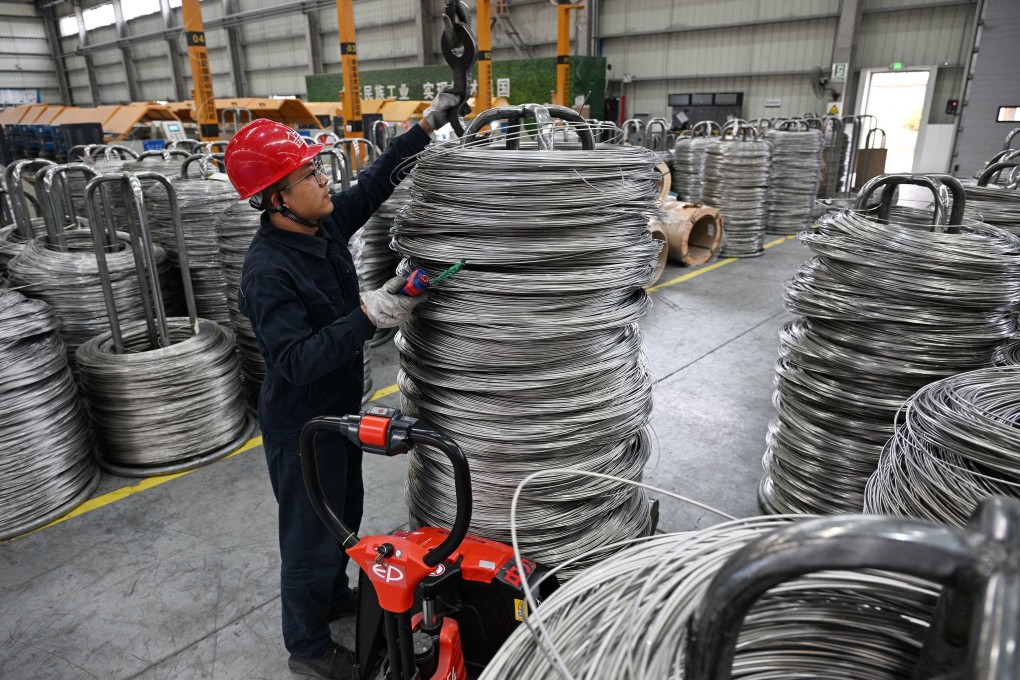Hong Kong stocks rebound from 4-week low on strong China manufacturing data
A private report shows that China’s manufacturing industry expanded at the fastest pace in four months in March

The Hang Seng Index closed 0.4 per cent higher at 23,206.84 on Tuesday. The Hang Seng Tech Index gained 0.2 per cent. On the mainland, the CSI 300 Index closed practically unchanged and the Shanghai Composite Index added 0.4 per cent.
The purchasing managers’ index (PMI) compiled by Caixin rose to 51.2 in March, according to a statement by Caixin and S&P Global on Tuesday. That is the highest reading since November when the gauge reached 51.5. An official PMI report released by the statistics bureau on Monday showed the sector expanded at the fastest pace in a year last month.
The readings add to evidence that China’s economic recovery is getting under way, albeit in a mild manner, after a slew of stimulus measures last year. Economists from Nomura Holdings and Morgan Stanley forecast a moderation in growth in the coming quarters as the downturn in home prices continues and the effect of a trade-in programme for consumer goods fades.
“China’s economic data is improving, but at a very slow pace,” said Yan Zhaojun, an analyst at Zhongtai Securities. “There’s no fresh catalyst for Hong Kong stocks for now, and stocks are likely to trade sideways. Risk aversion is rising because of the disruption from the reciprocal tariffs.”